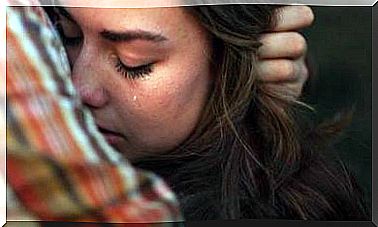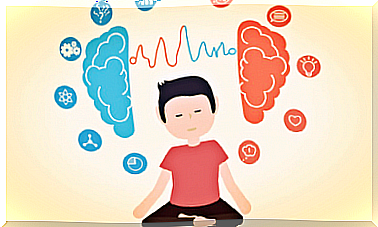How To Identify Mental Problems In Adolescents?

Most adolescents go through, and sometimes undergo, a complex maturation process that involves the transition from childhood to adulthood. In a high percentage of cases, the adolescent finds his place without the revolutions he has undertaken negatively affecting his adult life. However, unfortunately, this is not always the case.
Dr. Cheryl Corcoran, director of a psychiatric diagnostic program at Columbia University, says that “ the adolescent who is at risk for psychosis feels very lonely and isolated and wonders if he or she is going crazy. It may not look very different from the outside, but the individual’s experience is very different. “
Obviously, not all adolescents suffer from psychosis. Neither are serious mental problems. However, it is an ideal time for personality disorders, erratic behaviors and other types of conditions caused by the complex mental process they go through to manifest.
Taking into account that diseases such as schizophrenia and even bipolar disorder do not arise out of nowhere, it is important to know what are the traits that are associated with these mental problems in order to be attentive and to be able to make an early diagnosis that can lead to a substantial improvement in the living conditions of the subject.
Identifying mental problems in adolescents
The American Psychiatric Association, also known as APA, has published a catalog of traits and symptoms easily identifiable by those who are closest to and attached to adolescents.
In this way, if there are warning signs or strange behaviors, you can react. This is how the young person can receive early care that delays the onset of the problem, reduces the severity and allows proper development:
- Social isolation and loss of interest in your surroundings, especially with regard to people, can be a red flag.
- Abandonment attitudes and skills can also be a sign. If the young person abandons their studies, sports practices, attending their center, carrying out tasks at home, etc., it can be synonymous with a greater problem.
- The ability to concentrate, memorize and use logical and verbal language can be symptoms of mental problems.
- Reactions to different stimuli can be a disorder. If your hearing, visual, tactile or other sensitivity increases, it is better to seek a specialist.
- The feeling of apathy in the young man could also be showing a disorder. If you do not show initiative or desire to participate, it is best to seek a professional diagnosis.
- Sometimes teens seem disconnected from the world. This is usually associated with age, rebellion or a transitory process, but it can also be the beginning of a mental problem.

- Illogical or fanciful thoughts, more likely in childhood than adolescence, could be a clue. If your beliefs about a subject are exaggerated or unusual, there may be a problem.
- Your state of anxiety and excess nerves will also be synonymous with a possible psychological problem.
- Behaviors in adolescents can be peculiar at times. However, if they are inappropriate and take a long time, it is better to seek help.
- Changes in habits, such as excessive sleep, lack of appetite or laziness and deterioration of personal hygiene are a striking symptom.
- During adolescence, the young man begins to find his emotional stability. If these changes are exaggerated and excessively rapid, as in children, able to go from laughing to crying in seconds, it is better to take precautions.
What to do in a suspicious situation?
If you suspect that a young person shows any of these behaviors, it does not have to be synonymous with a mental disorder. However, if one or more of these situations occur in a particular boy, it is never a bad idea to ask for professional help and get rid of doubts.

Criminologist Matthew Robinson tells of his own experience lived in his family environment. When his 20-year-old brother suffered a mental breakdown with hallucinations and conspiracy obsessions, he was rushed to the doctor.
Eventually the young man was diagnosed with bipolar disorder. However, the early professional care he received allowed him to be treated. He is now a renowned professor. So you know, the importance of reaction on time is paramount. It never hurts to get out of doubt and get help.









